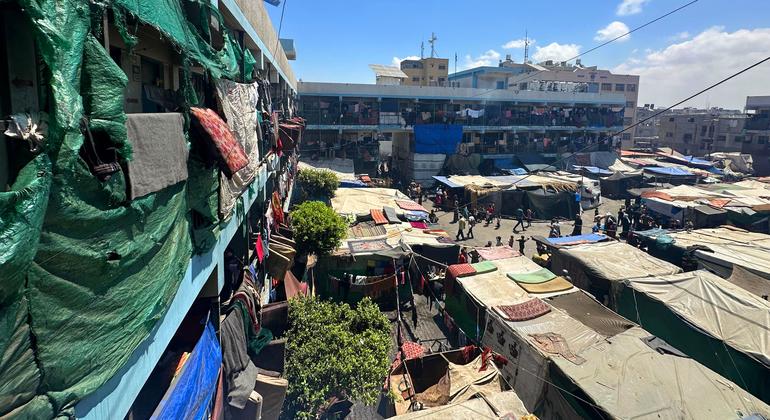There are enough chlorine reserves to last just one month, said the UN aid coordination office, OCHA, while double the amount of purifying solution needs to be used to be effective now.
Children are particularly at risk of waterborne diseases and the danger is set to rise during the winter months if Gazans continue to be forced to live in overcrowded shelters lacking adequate water and sanitation facilities, OCHA noted.
The UN agency added that acute shortages of soap for handwashing, laundry powder/liquid and shampoo, and a lack of disinfectants, continue to allow diseases to spread easily.
The UN agency noted that a day earlier, a strike landed at a school-turned-shelter in Gaza City. Children were reportedly killed and injured, and some burned to death, said UNRWA Commissioner-General Philippe Lazzarini.
Seven in 10 UNRWA schools have been hit and over 500 people have been reported killed, with over people 1,700 injured despite being protected under international humanitarian law.
In its latest humanitarian update, OCHA warned that repeated displacement, including among children diagnosed with malnutrition, has made it difficult for partners to monitor their progress and for families to carry sufficient supplies to prevent and treat the condition.
Between 3 and 16 August, 26,825 children under the age of five and 12,728 pregnant and breastfeeding women received a 30-day allocation of special nutritional supplements in Khan Younis, Deir Al-Balah and Rafah, from the UN World Food Programme (WFP).



UN News - News Source Context (Click to view Full Report)
Information for UN News:
Search topics on Ground.News
https://news.un.org/en/story/2024/08/1153436
Media Bias Fact Check | bot support